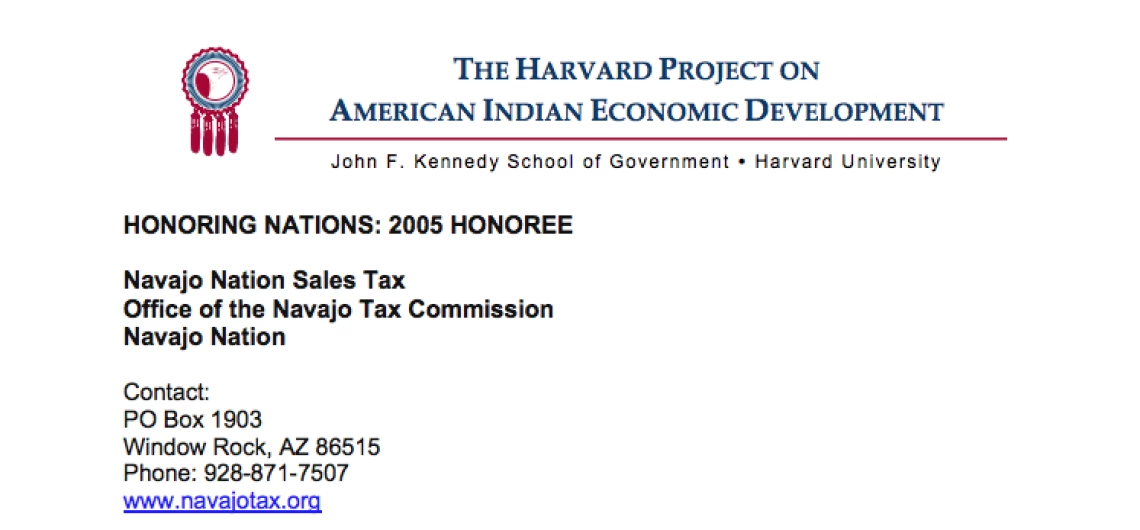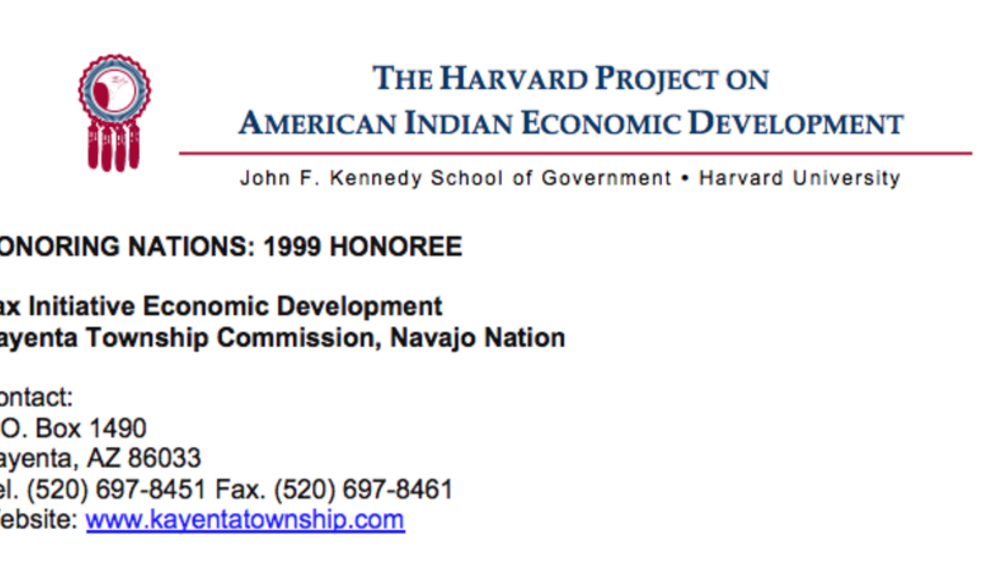Challenges facing sovereign nations include how to support themselves financially, run their governments, and meet the needs of their peoples. In 1974, the Navajo Nation established a Navajo Tax Commission. Following a US Supreme Court decision affirming the Nation’s right to impose taxes, the Commission began to collect specific taxes. In 2002, the Nation instituted a tribal sales tax as a strategy for decreasing tribal government dependence on revenue from federal and state grants and from the sale of non-renewable resources. Relying on the traditional concept Beenahaz’aanii Nahat’a (an act of gathering individuals to reach group understanding), the tribal government consulted citizens before introducing the policy, generating a buy-in for an initiative that has already raised $43 million for the Nation. Among other things, sales tax revenues fund local government, giving financial teeth to a major effort by the Nation to put more decision-making power in the hands of local Navajo communities.
Additional Information
"Navajo Nation Sales Tax". Honoring Nations: 2005 Honoree. The Harvard Project on American Indian Economic Development, John F. Kennedy School of Government, Harvard University. Cambridge, Massachusetts. 2006. Report.



